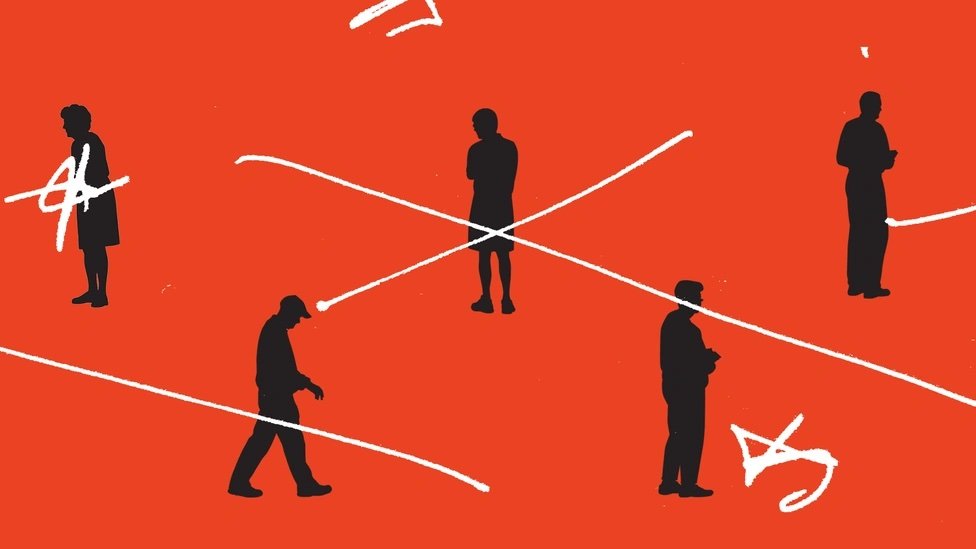Covid has brought Westerners face to face with death - and this might be releasing a passion for a better future
From The Atlantic
An epic Guardian long read on how Covid has changed our attitudes to death and time, by the psychoanalyst Jacqueline Rose. Some extracts below:
Death’s increased presence makes us more radical
Sigmund Freud once stated that no one believes in their own death. In the unconscious, there is a blank space where knowledge of this one sure thing about our futures should be.
If the pandemic has changed life for ever, it might therefore be because that inability to countenance death – which may seem to be the condition of daily sanity – has been revealed for the delusion it always is. To be human, in modern western cultures at least, is to push the knowledge of death away for as long as we can.
“There used to be no house,” the Marxist critic Walter Benjamin wrote in his 1936 essay The Storyteller, “hardly a room, in which someone had not once died.” In modern life, on the other hand, he argued, dying had been pushed beyond the perceptual realm of the living, although his diagnosis did not of course include the destitute nations or anticipate the impending war.
In the midst of a pandemic, death cannot be exiled to the outskirts of existence. Instead, it is an unremitting presence that seems to trail from room to room. One of the as yet unanswered questions of the present moment is how soon the vaccine rollout, among the privileged nations, will allow hospitals to return once and for all to curing and caring for life rather than preparing for death, so that doctors and nurses will no longer be faced with the inhuman choice between cancer and Covid.
“Not today,” one palliative care nurse found herself saying in the midst of the first wave, to patients cut off from their loved ones, the terror visible in their eyes, when they asked her if they were going to die. “Not today” – she did not even pretend to know more.
What on earth, we might then ask, does the future consist of once the awareness of death passes a certain threshold and breaks into our waking dreams? What, then, is the psychic time we are living? How can we prepare – can we prepare – for what is to come?
If the uncertainty strikes at the core of inner life, it also has a political dimension. Every claim for justice relies on belief in a possible future, even when – or rather especially when – we feel the planet might be facing its demise.
This is all the more visibly the case since the pandemic has allowed the bruises of racial, sexual and economic inequality in the modern world to rise mercilessly to the surface of our social arrangements for everyone, unavoidably, to see.
The misery of impoverished peoples, black men gunned down by police on the streets, women trapped in their homes during lockdown, assaulted and murdered by their partners – all these realities, each with its history of racial and sexual violence, are pressing harder on public consciousness, as they move from the sidelines on to the front page.
The psychological terrain is starting to shift. Alongside the terror, and at least partly in response, a renewed form of boldness, itself relying on longstanding traditions of protest, has entered the stage – a new claim on the future, we might say. One by one, people are calling out the systemic forms of discrimination that are so often passed off as the norm.
People will no longer accept denials that the problem exists, such as the UK government-commissioned Sewell report, published in March, which rejected the fact of institutional racism; or tolerate the more deeply entrenched hatreds, as expressed in the visceral rage and threats against the marchers of Black Lives Matter; or leave unchallenged the studied indifference towards injustice that makes people turn aside and casually assume that this is just how the world is and always will be.
From Vogue India
A world that makes room for both memory and justice
…One place to begin would be to make room for the complex legacies of the human mind, without the need to push reckoning aside. Past wrongs would not be subject to denial, as if our personal or national identities depended on a pseudo-innocence that absolves us of all crimes.
Let the insights of the analytic couch percolate into our public and political lives and, no less crucially, the other way round (we need to acknowledge the weight of historical affliction on our dreams).
In my ideal scenario, social trauma and injustice would not be seen as belonging to another universe from our most wayward fears and desires. Instead, they would both find their place at the negotiating table, as we tentatively begin to draw the outlines of a better world.
Meanwhile, taking responsibility for failure in relation to the pandemic would help: the cry for redress, for official investigations, or simply for public acknowledgment of the avoidable disaster that millions have been living, from the UK to India to Brazil. Though none of this will bring back the thousands who should not have died.
In psychoanalytic thought, failure and fragility are a crucial part of who we are (only by knowing this can we make the best of our lives). Failure, too, has the strongest political resonance today, as many of us now anxiously wait to see if the idea will be allowed, in any meaningful or lasting way, to enter the collective political mind.
Will the collapse of the western powers in Afghanistan be a gamechanger? Or, despite widespread agreement that we have been witnessing a catastrophic failure of policy, will any such recognition turn out to be a fleeting gesture, no more than a pause in the preparations for endless war? Squabbling over whether the US is a “big” or “super” power – according to the UK defence minister, only a country willing to exert global force has a right to the second epithet – is hardly reassuring.
So, how will the pandemic be lived when it is no longer – as we can only hope – at the forefront of people’s consciously lived lives? How will it be remembered?
Will it be a tale of vaccine triumph, with no mention of the murderous injustice of unequal global distribution; a story of government negligence and accountability; or an acceptance of the ongoing grief for the dead?
Responding to a suggestion to make the memorial wall permanent, the artist Rachel Whiteread suggested it should be “left just to be and then gradually disappear. To have its quietness.” You cannot, she stated, memorialise something that is still going on; a more permanent memorial will need distance and time.
When we reach that point, the challenge will be to resist the temptation to brush everything under the carpet, as if the best hope for the future were to go back to normal and blithely continue with matters as they were before: push death aside, treat swaths of the Earth’s inhabitants as dispensable, drive the planet to its end.
On the other hand, a world that makes room for memory and justice would be something else. There is still everything to play for.


